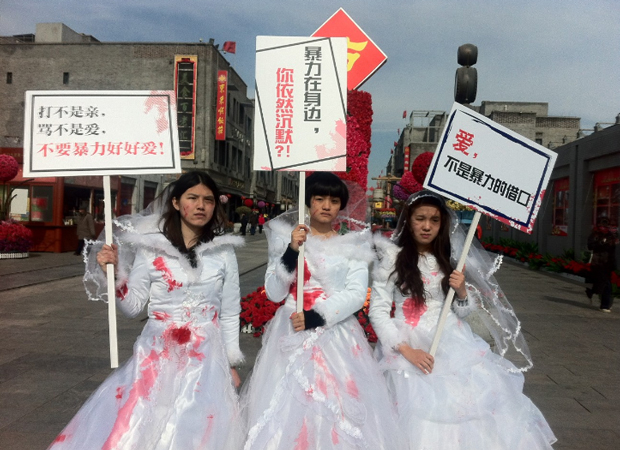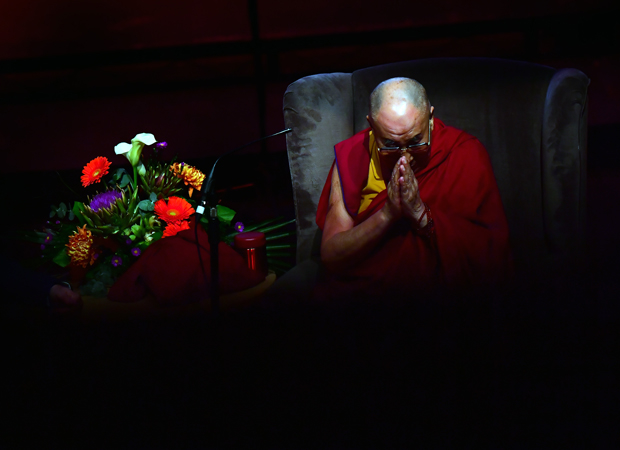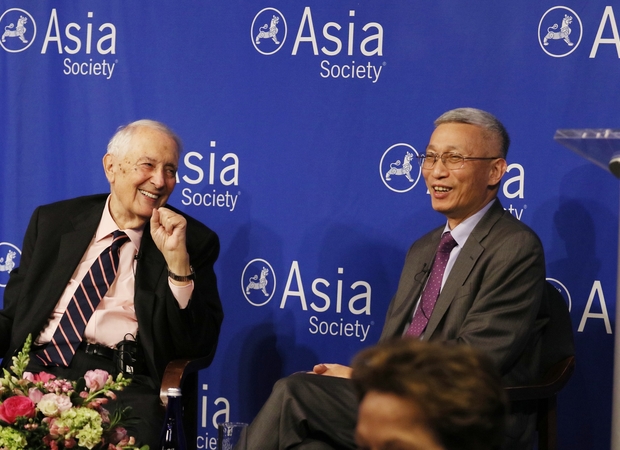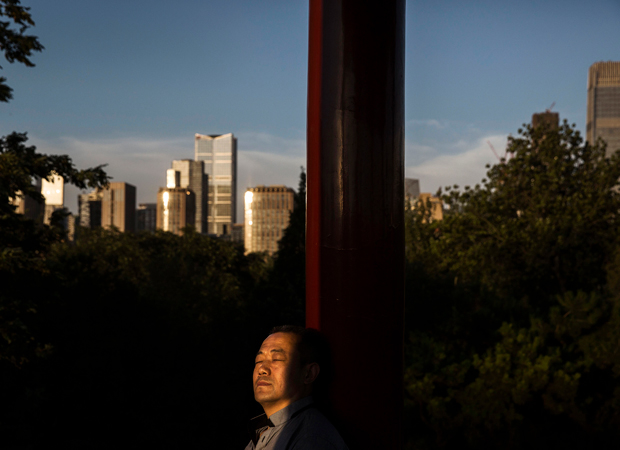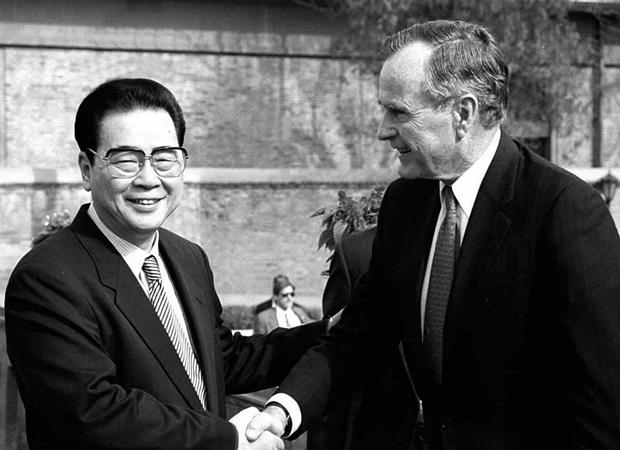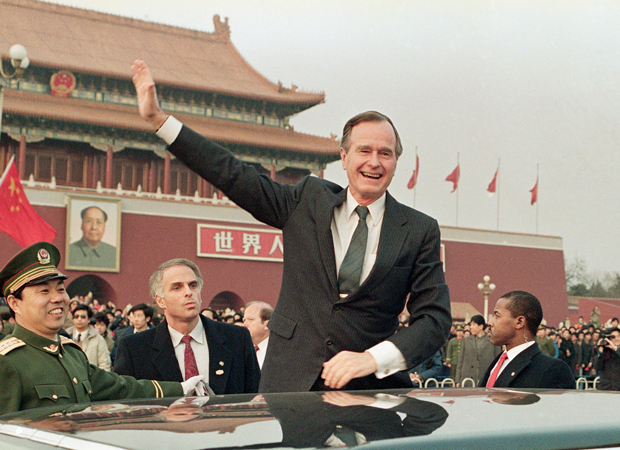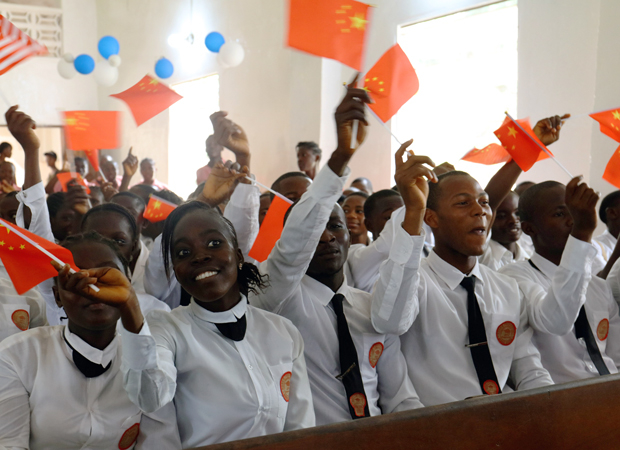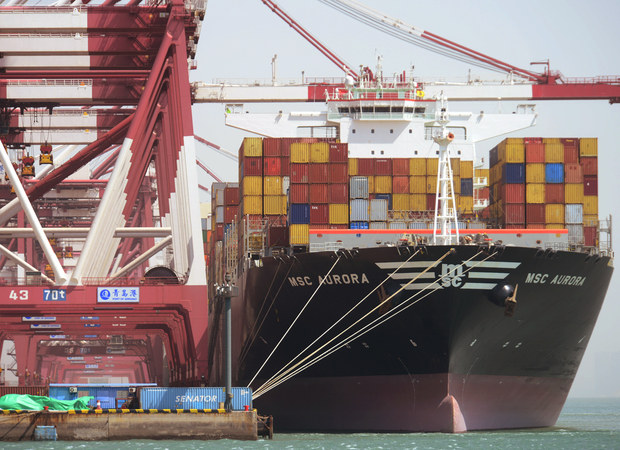
Trade: Parade of Broken Promises
from Democracy: A Journal of IdeasThe trade war between the United States and China has not given either side much to cheer about. As of January, Washington has levied 10 percent tariffs on U.S.$250 billion in Chinese goods, and China has reciprocated with similar tariffs on U.S...
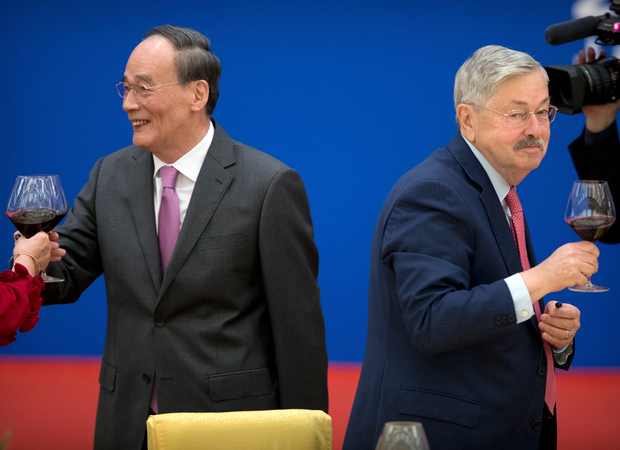
If the U.S. and China Make a Trade Deal, Then What?
The U.S.-China trade war has always been about more than just trade. Among other issues, it represents a move towards the decoupling of the two economies. Sometime within the next few weeks, Washington and Beijing may call a truce on the trade...

Is This the End of Belt and Road, or Just the Beginning?
On April 25-27, China’s government will host the leaders of dozens of countries to celebrate the Belt and Road Initiative (BRI), the signature foreign policy program of Xi Jinping. Since its founding in October 2013, the BRI now covers more than...
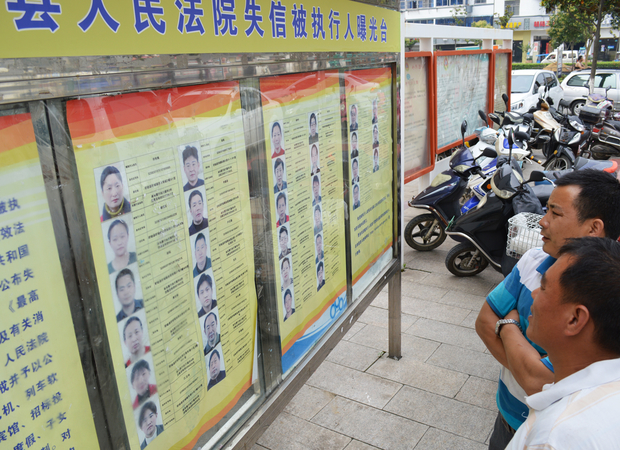
The Messy Truth About Social Credit
from LogicAlmost every day, I receive an email from Google Alerts about a new article on China’s “social credit system.” It is rare that I encounter an article that does not contain several factual errors and gross mischaracterizations. The social credit...

‘I Have Revised My Idea of What a Uighur Heroine Should Be’
The Chinese government would have you believe a good Uighur woman is one who knows how to apply false eyelashes and cook dumplings. She is neither too modest nor too forward. She is “good at singing and dancing.” Since leaving China, I have spent...
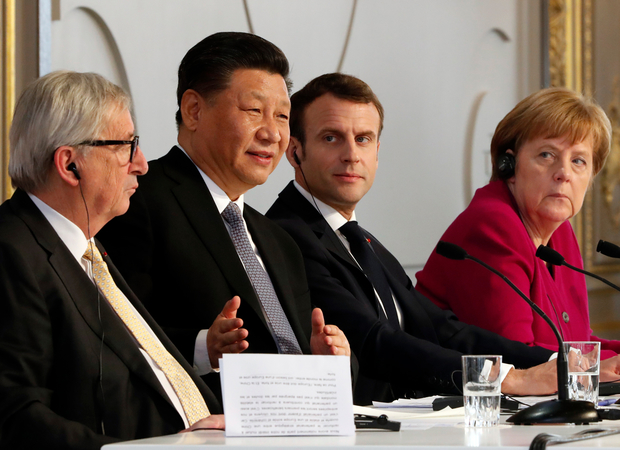
In Reassessing China, Europe Sharpens Its Approach
from Carnegie ChinaIn recent weeks, Beijing has both won victories and suffered defeats during important summits and dialogues with France and Italy, as well as the European Union. French President Emmanuel Macron invited German Chancellor Angela Merkel and...
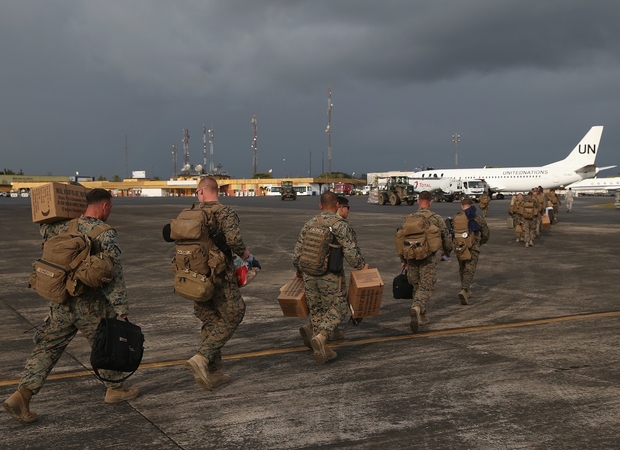
A Conservative American View on U.S.-China-Africa Relations
Colonel Chris Wyatt, Director of African Studies at the U.S. Army War College, joins Eric and Cobus to discuss a conservative U.S. foreign policy outlook regarding Africa and his views on Chinese engagement on the continent.

Susan Thornton on a Crisis in U.S.-China Relations
from Carnegie ChinaOver three years into Trump’s presidency, U.S.-China trade and economic issues remain unresolved while security concerns are creeping into the bilateral agenda. Thornton contends that Washington and Beijing should quickly agree on an initial...
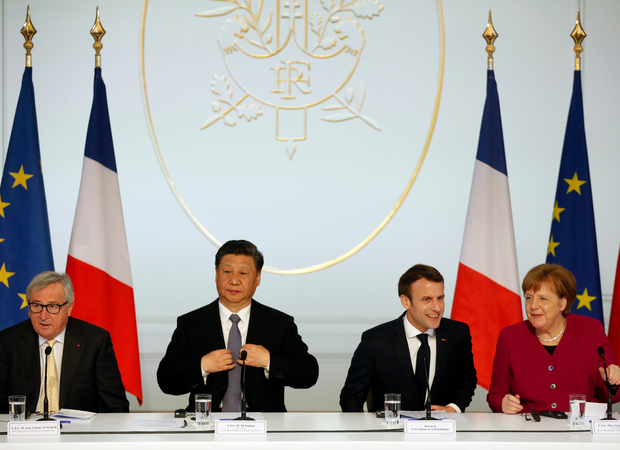
How Should Europe Handle Relations with China?
When Xi Jinping visited Europe in late March, European Commission President Jean-Claude Juncker portrayed the future of EU-China relations in mixed terms: “We are strategic partners, and yes, rivals,” he said, “but competition among us is a good...
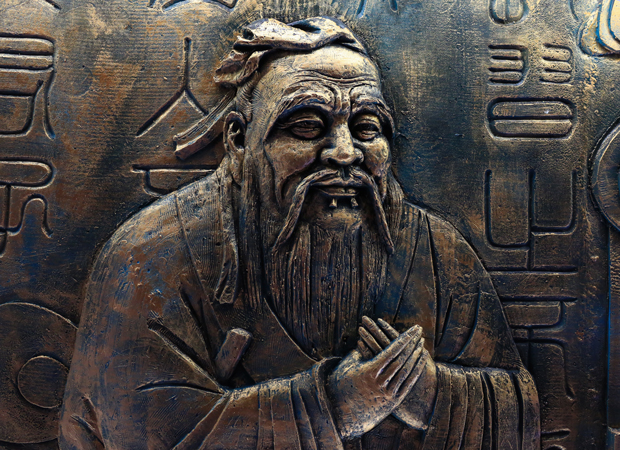
Are Confucius Institutes Good for American Universities?
Confucius Institutes continue to incite controversy in America. Since 2006, China’s government has given more than $158 million to dozens of U.S. universities to host the institutes, which offer Chinese language classes and hold events. To...

What Does the Punishment of a Prominent Scholar Mean for Intellectual Freedom in China?
This week, Xu Zhangrun, a law professor at Beijing’s Tsinghua University who in recent months has penned a series of essays critical of policies of the Chinese Communist Party and of its leader, Xi Jinping, was banned from teaching, relieved of...
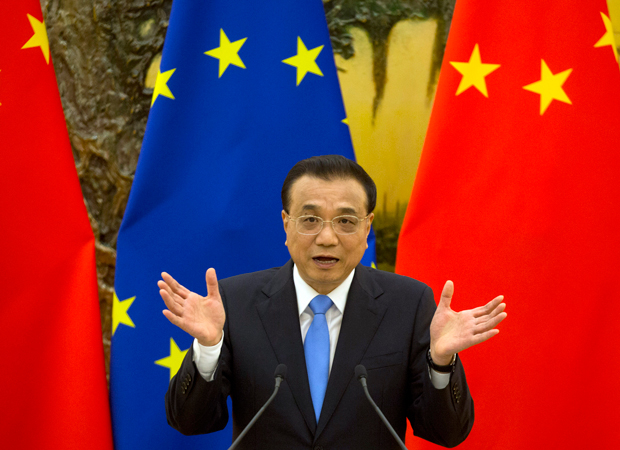
Xi’s Visit to ‘Rival’ Europe
from Carnegie ChinaPresident Xi Jinping travels to Italy and France this month for his first overseas trip of 2019. His visit comes soon after the European Commission labeled China a “systemic rival” and “economic competitor.” Xi’s objective for both trips is to...

‘I Can’t Sleep: Homage to a Uyghur Homeland’
In the 2000s, New York-based artist Lisa Ross traveled to the city of Turpan in China’s Xinjiang Uighur Autonomous Region and photographed local people on the beds that they keep in their fields. The portraits in that series are currently on...
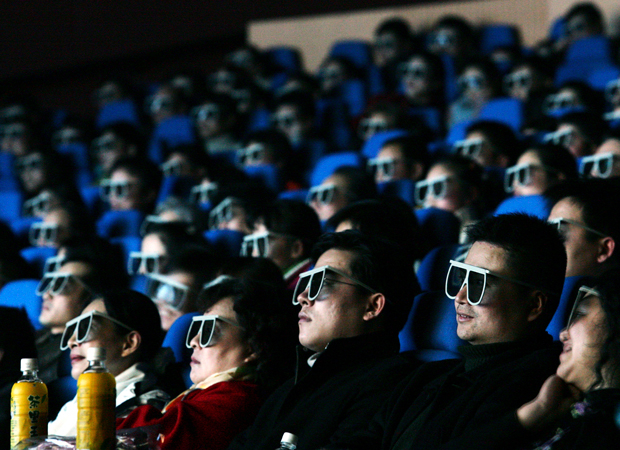
Here’s How the Trade War Is Affecting Hollywood
In February 2017, the United States and China began renegotiating the five-year film pact that had limited the annual number of foreign film exports to China to 34 and the share of revenue payable to foreign-rights holders to 25 percent of gross...

The Future of China-U.S. Military Relations
The U.S.-China military relationship has been relatively stable over the past few years. Both sides’ leaders recognize that effective relations between the two militaries help prevent crises and stabilize the broader bilateral relationship....
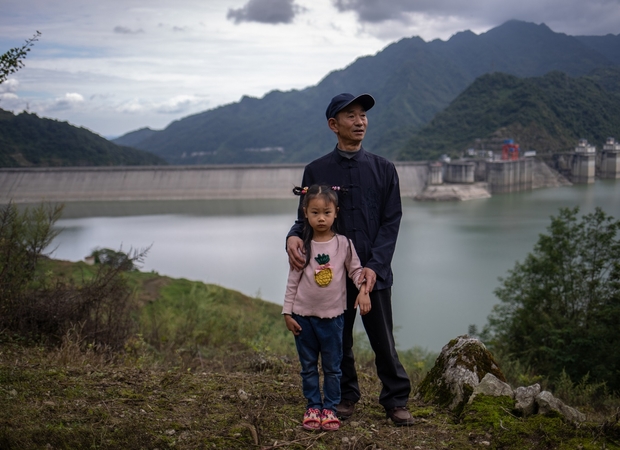
Living by the Rivers
from Yuanjin PhotoIf the stories in this edition of Depth of Field share a common thread—apart from their distinguished photographic storytelling—it’s their interest in the flux and churn of life in China in 2019, where nothing seems fixed and pressure of constant...

‘We’re Very Sexy People’: How the U.S. Miscalculated Its Allure to China
The Sino-Vietnamese War is rarely remembered or discussed today. But 40 years ago, the war appeared to herald a tectonic shift in regional and global politics and helped forge a close, more trusting relationship between the leader of the free...

‘It’s Hopeless But You Persist’: An Interview with Jiang Xue
from New York Review of BooksThe forty-five-year-old investigative journalist Jiang Xue is one of the most influential members of a group of journalists who came of age in the early 2000s, taking advantage of new—if temporary—freedoms created by the Internet to investigate...
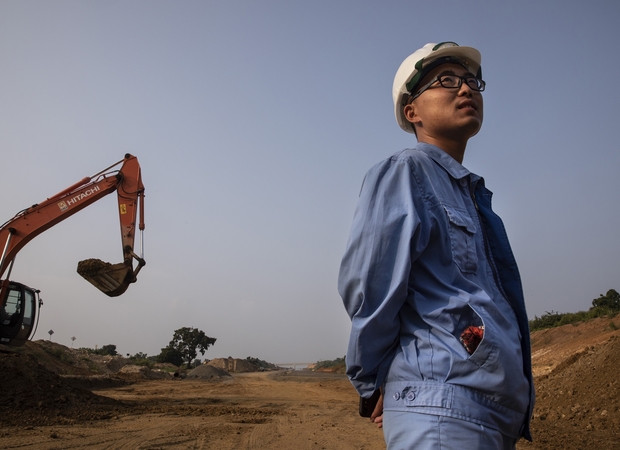
China is Upping Its Aid and Development Game. How Should the U.S. Respond?
During his September 2018 U.N. address, President Donald Trump threatened that the United States may decide to only give foreign aid to “those who respect us and, frankly, are our friends.” In August, the White House attempted to cut foreign aid...
The Face of China’s #MeToo Movement Enters the Fray
In the summer of 2014, Zhou Xiaoxuan, then a 21-year-old living in Beijing, filed a report with the local police. She described what had happened the previous day when she had delivered a basket of fruit to one of China’s most prominent news...

Where Is China’s Foreign Policy Headed?
In testimony last week before the Senate Select Committee on Intelligence, Director of National Intelligence Dan Coats asserted that “China’s actions reflect a long-term strategy to achieve global superiority.” With China’s global influence and...

Why China Doesn’t Need to Worry about Washington’s New Africa Policy
When U.S. National Security Advisor John Bolton announced Washington’s new strategy for Africa last December, he mentioned China 14 times in his speech. So often, in fact, that a lot of observers commented that the new policy seemed to be more...

‘Reeducating’ Xinjiang’s Muslims
from New York Review of BooksIn a courtroom in Zharkent, Kazakhstan, in July 2018, a former kindergarten principal named Sayragul Sauytbay calmly described what Chinese officials continue to deny: a vast new gulag of “de-extremification training centers” has been created for...

What Do the Huawei Indictments Mean for the Future of Global Tech?
The United States indictments against Huawei look set to significantly worsen already tense relations between China and the U.S. As America pressures allies to drop Huawei and other Chinese firms, U.S. and European officials point to China’s own...
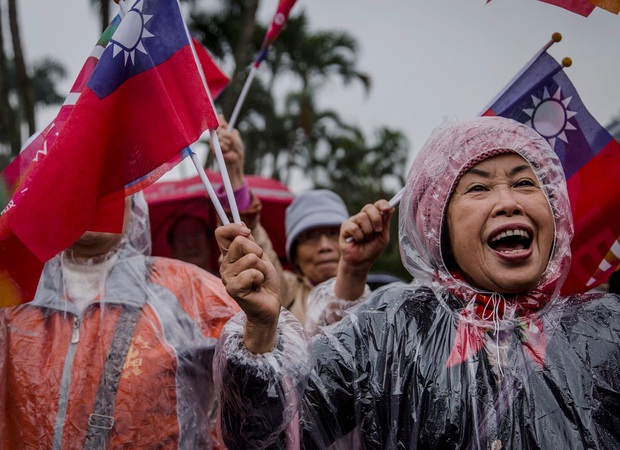
What Does Xi Want from Taiwan? (And What Can Taiwan Do About It?)
In a major speech in early January, China’s leader Xi Jinping called unification across the Taiwan Strait “the great trend of history,” and warned that attempts to facilitate Taiwan’s independence would be met by force. Taiwanese President Tsai...
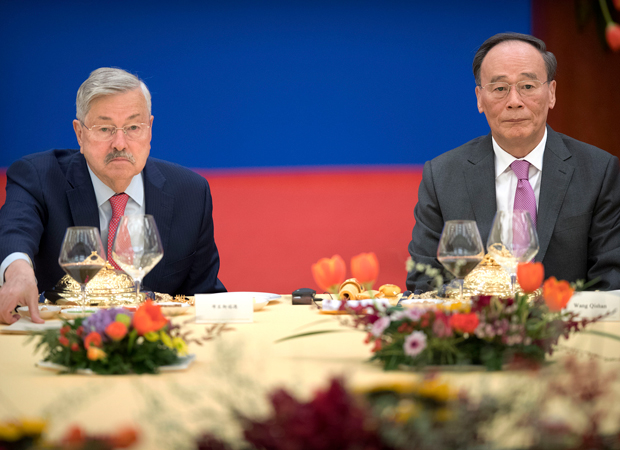
Graham Allison on Avoiding the Thucydides Trap
from Carnegie ChinaAllison says the Thucydides Trap is the best framework to understand why there is potential for conflict between the United States and China. As China grew stronger, the U.S. failed to recognize Beijing would increasingly assert its own vision...
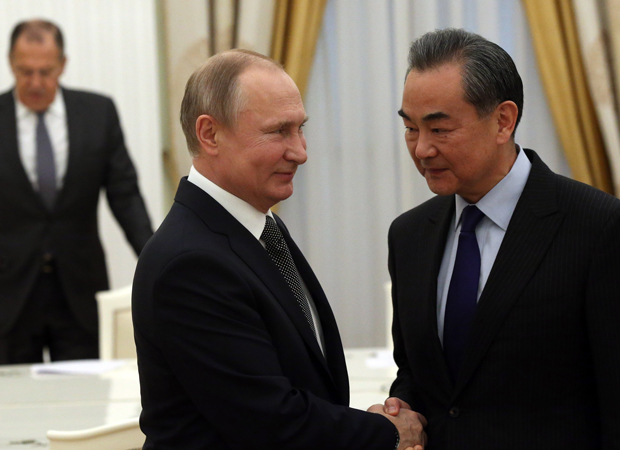
China’s Shift to a More Assertive Foreign Policy
from Carnegie ChinaShi points to two important turning points in China’s shift to a more assertive foreign policy: the 2008 global financial crisis, which made it clear that China’s economic development was an important engine for global growth; and Xi Jinping’s...
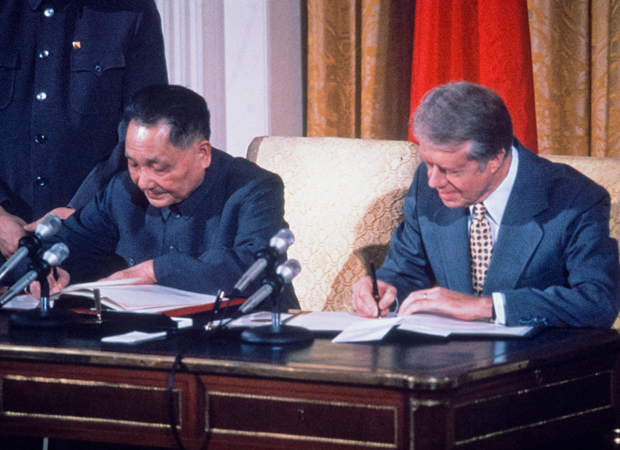
Normalization of Sino-American Relations: 40 Years Later
The spirited 2019 New Year’s speeches of Taiwan’s President Tsai Ing-wen and China’s President Xi Jinping have just reminded the world that, 40 years after the normalization of relations between the United States and China, the...

Where Did the One Million Figure for Detentions in Xinjiang’s Camps Come From?
As journalists and scholars have reported in recent months on the campaign of religious and cultural repression and incarceration taking place in the Chinese region of Xinjiang, a central question has emerged: How many people has China’s...
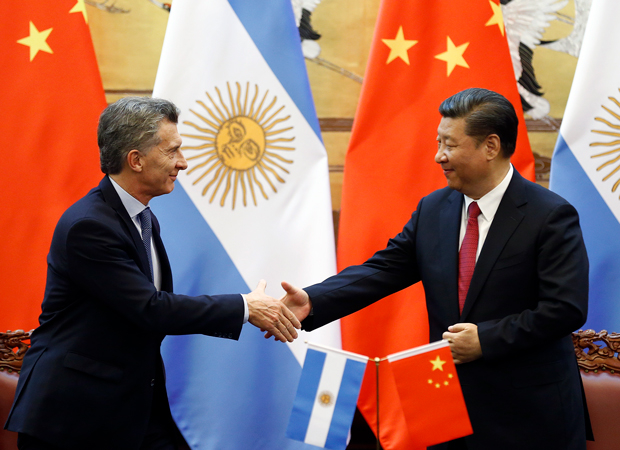
China’s Growing Footprint in Latin America
Many Latin American countries experienced political change in 2018, with presidential elections in three of the largest countries—Brazil, Mexico, and Colombia—and transitions in Chile, Costa Rica, Cuba, El Salvador, and Paraguay. Meanwhile,...

Is this the Beginning of a New Cold War?
Beyond complicating trade negotiations between the United States and China, the arrest of Huawei CFO Meng Wanzhou has renewed concerns that the two countries are embarking on a new Cold War, based on economic preeminence and technological...

Devising a New Formula for Global Leadership
from Carnegie ChinaYan asserts the U.S.-China relationship is experiencing structural disruptions, the resolution of which will have a lasting impact on the two countries. He says the tensions in the U.S.-China relationship are primarily due to the narrowing gap...

Managing a Fragile Transition in U.S.-China Relations
from Carnegie ChinaHaenle and Cui discuss lessons from the past 40 years of the bilateral relationship, central areas of cooperation and competition, and a future framework that will allow China and the U.S. to avoid conflict. Cui asserts that U.S. and Chinese...
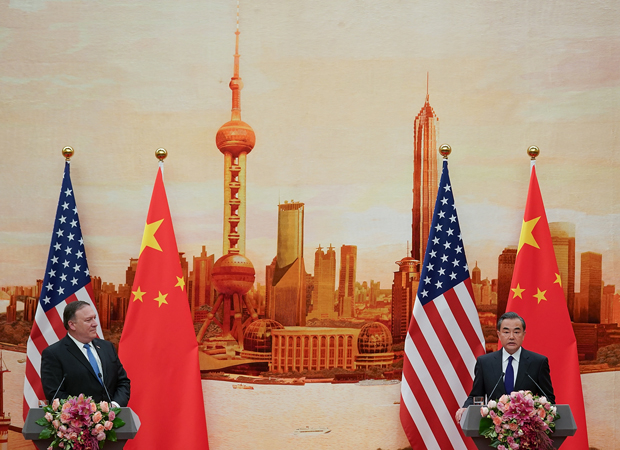
China Is Rising Faster
from Carnegie ChinaWang says that it has been primarily China’s development that has driven changes in the U.S.-China relationship going back to the Qing Dynasty. However, the U.S. still has significant influence and can play an important role in guiding China’s...

Beijing’s Long Struggle to Control Xinjiang’s Mineral Wealth
The Silk Road Economic Belt—the overland component of Xi Jinping’s signature Belt and Road Initiative (BRI)—promises to bind China to Central Asia and beyond through a new infrastructural network. Connecting through China’s far western Xinjiang...
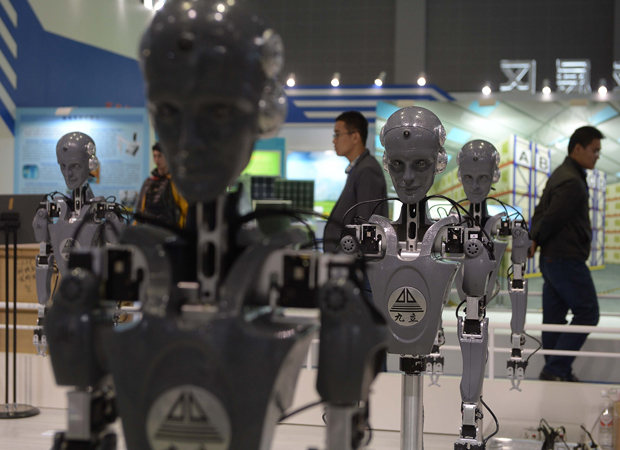
How to Be a Chinese Scientist without Being China’s Scientist
As trade tensions between the United States and China worsen, a new technological cold war looms, casting its shadow over American universities and research institutions. How should individual scientists of Chinese origin decide whether to accept...

Why the Taiwan Midterm Elections Matter
On November 24, millions of Taiwanese will vote for more than 11,000 mayors, councilors, and other officials nationwide in a key midterm election—only the country’s fifth since the victory of Chen Shui-Bian in 2000 ended decades of continuousrule...

The Uighurs and China’s Long History of Trouble with Islam
from New York Review of BooksLast month, I spent several days at the Forbidden City, the gargantuan palace in the middle of Beijing where China’s emperors ruled the land for nearly five hundred years. I was there to attend a conference on religion and power in imperial China...
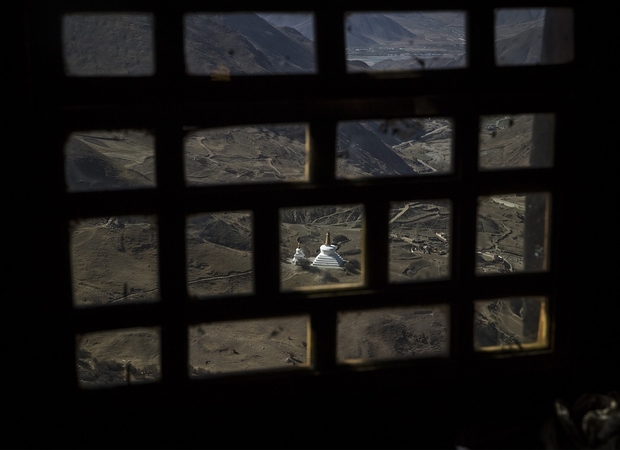
Has the World Lost Sight of Tibet?
Since the incarceration of roughly a million Uighurs in the northwestern Chinese region of Xinjiang over the last year, the situation in Tibet has gotten relatively less coverage in Western media. What is the current situation for human rights,...
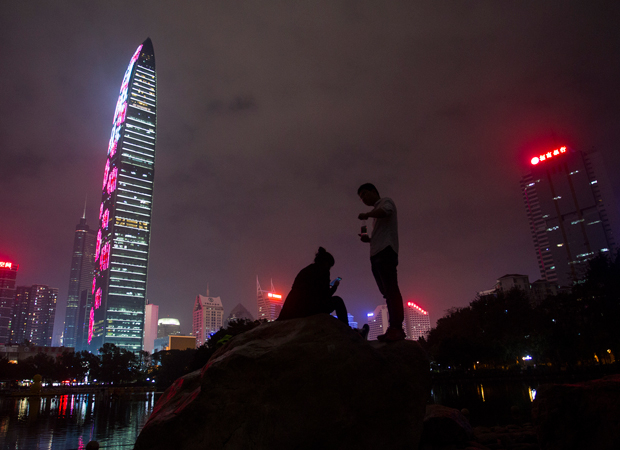
Forty Years on, Is China Still Reforming?
In late October, to commemorate the 40th anniversary of the “Reform and Opening Up” policy, China’s Chairman Xi Jinping visited the southern metropolis of Shenzhen, the first major laboratory for the Party’s post-Mao economic reforms. Like his...
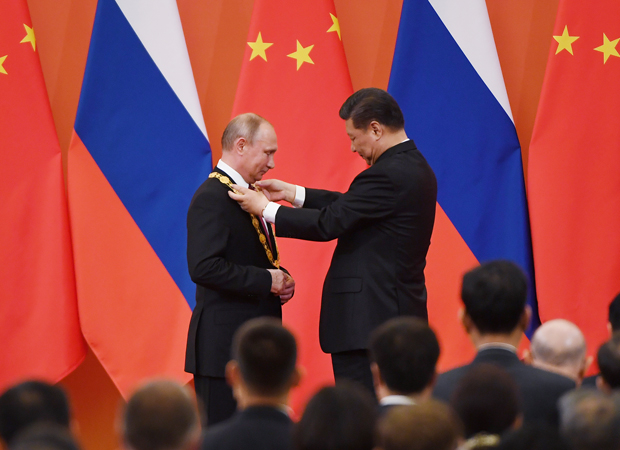
Is the U.S. Driving China and Russia Together?
from Carnegie ChinaAs U.S. relations with China and Russia deteriorate under the Trump administration, bilateral relations between Moscow and Beijing grow stronger. A “Cold War” between the U.S. and China has not yet begun, Trenin and Gabuev agree, but the two...

China’s Government Has Ordered a Million Citizens to Occupy Uighur Homes. Here’s What They Think They’re Doing.
The village children spotted the outsiders quickly. They heard their attempted greetings in the local language, saw the gleaming Chinese flags and round face of Mao Zedong pinned to their chests, and knew just how to respond. “I love China,” the...

With an Influx of Blue Helmets and Cash, China’s Role in African Security Grows More Pervasive
China’s growing engagement with African countries got a publicity boost on September 3 and 4 with the latest Forum on China-Africa Cooperation (FOCAC) summit. The triennial event brought leaders and officials from 53 African countries and the...
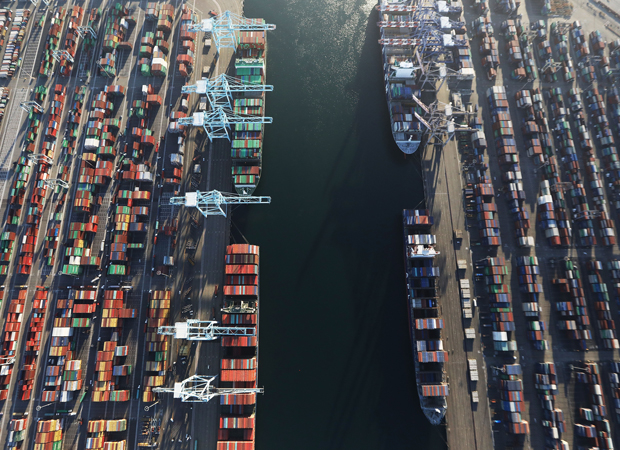
How Will China Respond to Global Concerns about its Trade and Economic Policies?
from Carnegie ChinaOfficial Chinese narratives about the U.S.-China trade war have not included Chinese reflection or discussion of what role China’s own policies have played in creating trade tensions. Many of the concerns on structural issues, such as market...
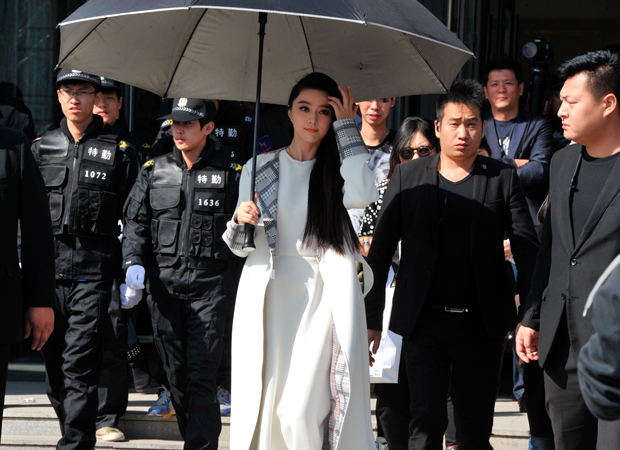
The Taxman Cometh for Fan Bingbing. So How Widespread Is Tax Evasion in China?
Mega-famous Chinese actress Fan Bingbing emerged from months of silence to admit on Weibo that she had evaded taxes and owed over U.S.$100 million worth of civil fines to Chinese authorities. In a remarkable apology, Fan wrote that, “without good...
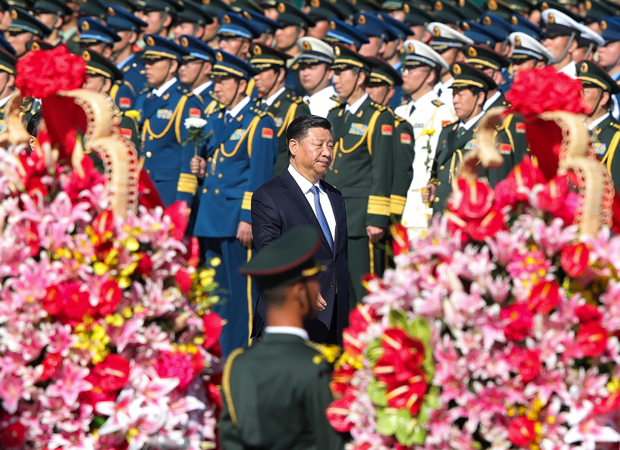
‘WeChat Is Not a Land outside the Law’
The second revision of the Chinese Communist Party’s internal discipline regulations in less than three years was introduced in August. The revised regulations are not dramatically different from the previous 2015 revisions. Not in the sense, at...

Is America Overreacting to the Threat of Chinese Influence?
American civil and political discourse has seen a growing number of reports about worrying Chinese governmental influence in the United States. Most recently, U.S. Vice President Mike Pence decried the “malign influence” of China in the United...






